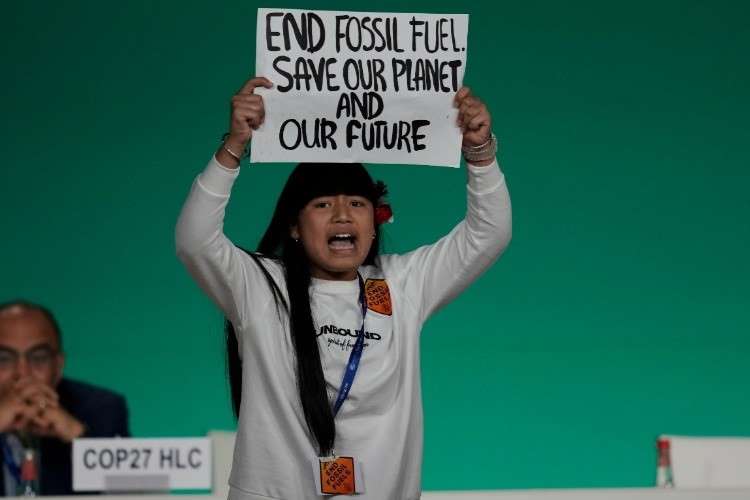
As the world watched the COP28 climate talks in Dubai extend into overtime, the indecisiveness over phasing out fossil fuels exposed a deep rift in the global response to climate change. The draft agreement, criticised for its lack of firm commitment to end the use of oil, gas, and coal, sparked a flurry of shuttle-diplomacy. However, the effort fell short of delivering the decisive action required to avert worsening climate catastrophes.
The central point of contention at COP28 was the language on fossil fuels. Many nations, including Australia, Canada, and members of the European Union, demanded a clear commitment to phase out fossil fuels. However, the draft text offered only a range of options, the most ambitious being a reduction in the consumption and production of fossil fuels by 2050. This proposal was deemed insufficient by many countries which expressed concern over the lack of ambition.
As the COP28 climate summit unfolded, it brought into sharp focus the global community’s struggle to reconcile scientific imperatives with political and economic realities. The talks, extended due to a deadlock over fossil fuel phase-out, highlighted the complexities of global climate negotiations.
READ I Fossil fuel footprints haunt COP28 draft document
The impasse at COP28
The COP28 climate talks, mired in indecision, revealed a profound dissonance in the global climate response. Despite the urgent need for action, as emphasised by the scientific community, nations remained divided over the language and commitments regarding the use of fossil fuels. The initial draft, critiqued for its lack of a decisive stand on fossil fuels, led to intense negotiations. However, this revealed a larger issue: the difficulty in achieving consensus among nearly 200 countries, each with its own set of priorities and challenges.
One of the central challenges in reaching a consensus on fossil fuel phase-out is the deep economic dependencies that many countries have on these resources. Nations like Saudi Arabia, a significant player in the global oil market, have vested interests in maintaining their fossil fuel economies. This economic dependency creates a political dynamic that complicates global climate agreements. The influence of such nations in the negotiations highlights the need for a more nuanced approach that balances economic realities with environmental imperatives.
The debate at COP28 also brought to the fore the differing responsibilities and capabilities of developed and developing nations. While developed countries have historically contributed more to greenhouse gas emissions, developing countries argue for their right to economic growth and access to energy. This disparity necessitates a differentiated approach to fossil fuel phase-out, acknowledging the varying capacities and historical contributions of countries.
The scientific community’s call for rapid action contrasts with the political and economic preference for a more gradual transition. The phase-out of fossil fuels, as per scientific advisories, requires a radical shift in energy consumption patterns, which poses significant challenges for countries heavily reliant on these resources. This tension between scientific urgency and the practicalities of a transition highlights the need for innovative solutions and compromises.
Renewable energy: Challenges and opportunities
While the commitment to increase renewable energy capacity is a positive stride, transitioning to these alternatives is fraught with challenges. Issues such as the intermittency of renewable sources, the need for substantial investments in infrastructure, and the technological advancements required for efficient energy storage and distribution are critical factors that need to be addressed. Overcoming these challenges is essential for a successful transition to a low-carbon future.
The discussion at COP28 also underscored the need for climate justice. Developing countries, already facing the brunt of climate impacts, call for fairness in the transition process. They emphasise the need for support in the form of finance, technology transfer, and capacity building to adapt to climate change and leapfrog to cleaner energy sources. This aspect of climate justice is crucial for ensuring that the transition to a sustainable future is equitable and inclusive.
The influence of fossil fuel lobby groups in diluting climate action cannot be understated. Their deep-rooted political connections and financial power pose significant challenges in advancing aggressive climate policies. Addressing this influence is essential for ensuring that climate policies are not compromised and that they align with scientific imperatives.
As the COP28 summit comes to a close, it became evident that the decisions made would have a lasting impact on the planet’s health and its future. The need for a decisive phase-out of fossil fuels, coupled with a just and equitable transition to renewable energy, is clear. The global community must rise to this challenge, embracing innovation, collaboration, and a commitment to sustainable development. Only then can we hope to address the climate crisis effectively and secure a sustainable future for generations to come.
